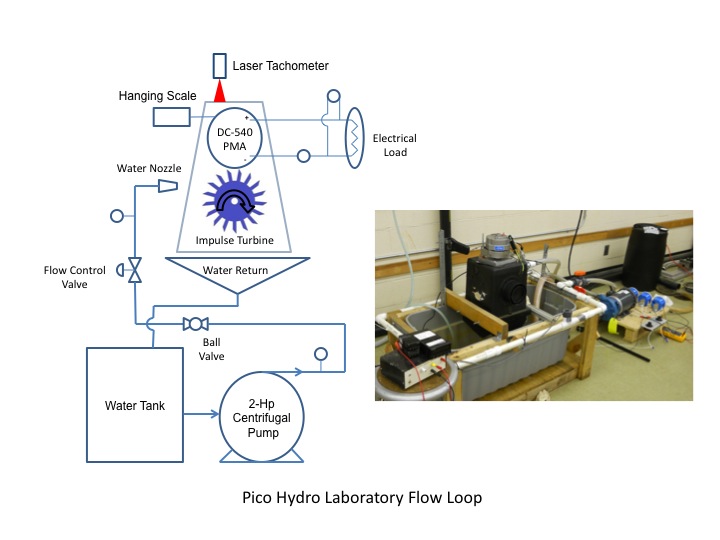Pico Hydro - An Experimental Study of Turgo Turbines
Increasing access to modern forms of energy in developing countries is a critical step towards eliminating extreme poverty around the world. Pico- (or micro-)hydro schemes (less than 5-kW range) can provide environmentally sustainable electricity and mechanical power to rural communities, generally more cost-effectively than diesel/gasoline generators, wind turbines, or solar photovoltaic systems. The use of these types of systems has in the past and will continue in the future to have a large impact on rural, typically impoverished areas, allowing them the means for extended hours of productivity, new types of commerce, improved health care, and other services vital to building an economy.
This project focused on laboratory flow loop experiments of impulse turbines (Pelton and Turgo). The turbine efficiencies were investigated over a range of parameters, including speed ratios and jet alignment (or mis-alignment). For maximum efficiency, it is important to accurately determine net head prior to installation to enable determination of optimal speed ratio. Furthermore, better-than-visual adjustments of alignment can enable optimal transfer of energy.











